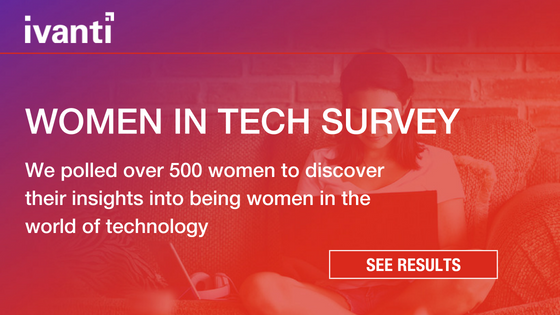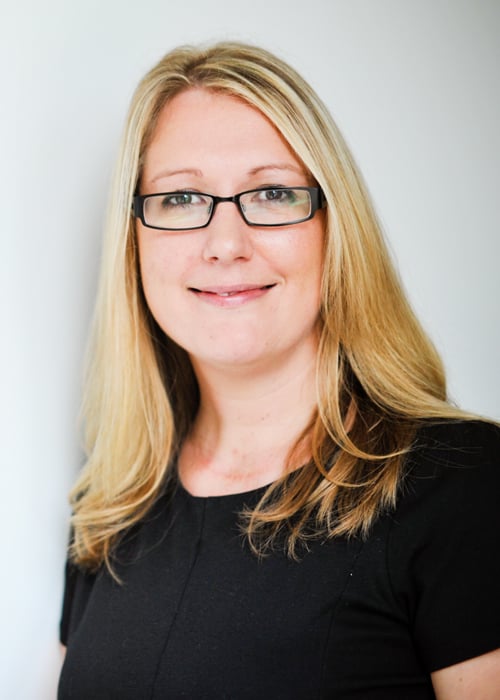Life as a Woman in Technology in the Legal Sector
Any of you who follow UK law firms on the news or social media will see that there are a lot of campaigns based around diversity. This was especially apparent during International Women’s' Day. I was interested in learning more about IT in the legal industry, so I had a chat with Zahra Khan, a Senior IT Project Manager at the international legal practice Osborne Clarke to find out a little bit about her journey into IT and experiences as a woman in technology. Below are the answers Zahra provided to my questions.
Q: Please tell us a little about yourself and what you do?
ZK: I’m a Senior IT Project Manager at Osborne Clarke. I’ve been with the firm for over 15 years, which is a testament to the great environment I work in. As well as managing projects and programmes, I also manage a team of project managers. Most of our focus is around software-related projects of which there are many!
I live with my husband and two children, so balancing family and work life is important to me, to ensure I can succeed in both roles.
Q: What is a day in your life?
ZK: There's no such thing as a typical day when it comes to project management. Every day is different. What you often find is that you plan to spend the day in one area, but your focus can shift elsewhere as the need arises. My daily tasks involve managing suppliers, tracking projects and programmes, chairing meetings and workshops, troubleshooting, writing reports, and communications—managing expectations and sometimes even getting stuck into project tasks. I often deal with scope creep, changing priorities, conflicting opinions, and scheduling challenges, which is interesting and keeps me on my toes! I like to revisit completed projects and review lessons learnt to encourage improvement in subsequent projects and ultimately business outcomes.
Q: When you were a child, what did you want to be when you grew up?
ZK: I wanted to be a teacher, like my mother. I was fortunate in that I had great role models at school and at home, which is so important when you are young and learning to understand the world around you. Later on, my interest turned to law, having thoroughly enjoyed some work experience with a firm of solicitors and I decided to go on to study law at university. I gained a law degree but decided that practicing law wasn’t really for me. That said, it gave me a good grounding and prepared me for a number of different opportunities during my career, including my first role where I was able to use my legal background.
Q: Could you please tell us a little bit about your journey into IT?
ZK: I implemented a CRM tool at a previous employer, and I found that particular project fascinating in terms of project-managing a technology solution from discovery through to implementation and business as usual. I found it so interesting to work through the stages of gathering requirements and collaborating with technology consultants. At that time we had an outsourced IT function, which added another dynamic to the mix. It turned out to be a really successful project and that piqued my interest in technology.
After that I joined Osborne Clarke as a project manager in the firm's business consultancy and project management team, which allowed me to work as a business project manager across all functions.
My first big project was the move to our existing offices, with the added twist that we were also the developers of the space. That was a steep learning curve for me! I was managing a multitude of different areas and working with our IT infrastructure team, architects, AV specialists, designers—and even a sculptor! Other projects have centred around winning new business and investing in clients.
Increasingly, as time went on, I found that it was very rare to be managing a project that didn't have a technical element at the heart of it. For example, as a project manager in business development, I saw the sourcing and implementation of a content management system through from beginning to end. I also managed several corporate website and intranet redesigns.
Each of these projects helped prepare me for a role in IT project management. I love the challenge of understanding the business requirements and what's required in order to deliver a successful solution and then seeing the result. More recently, I have been involved in the implementation of the firm's global HR management system. We're currently reconfiguring the CMDB of our incident management and procurement system in order to enhance our software and hardware management, as well as introducing elements of self-service to our people.
Q: What are you passionate about?
ZK: At work, I'm passionate about seeing projects through to the end. I really enjoy delivering an end product and I'm very much driven by seeing the business benefits. Sometimes these results are immediately clear and other times it takes longer to see them, but they nearly always come!
Outside of work I'm passionate about my family. We really love to travel; most recently a road trip in the campervan to Corsica, via France and Italy. There was a fair bit of project management involved in the travel logistics, but it was well worth it!
Q: You have children and a very busy job. How do you manage work/life balance?
ZK: For me, work/life balance is all about flexibility. Being able to work from home or work flexible hours really helps. We use all manner of innovative ways to make remote working possible, such as Skype for Business and video conferencing. I'm lucky at Osborne Clarke that the necessary technology investment has been made for this to be possible and to allow me to manage all aspects of work/life more effectively.
Q: We see a lot of legal firms have a focus on equality and diversity. Is that the case at Osborne Clarke?
ZK: Absolutely. Osborne Clarke is very forward-thinking when it comes to equality and diversity, and its agenda is a central pillar of our business strategy. Our UK Managing Partner is passionate about diversity; when he took over in 2015, he appointed a diversity and wellbeing manager in our HR team who runs a number of great initiatives.
We deployed the RARE Contextual Recruitment System in 2017. RARE helps us increase the diversity of our trainees and spot the best talent regardless of background. So far, we have offered two training contracts to applicants who have outperformed their peers, but without this valuable context they may have been overlooked.
As I have mentioned before, we prioritise work/life balance and have enabled agile and flexible working styles, through Connected Working as part of our strategy. We launched a generous family-friendly package that includes 26 weeks maternity, adoption, and shared parental leave on full pay, and a comprehensive one-to-one coaching service before, during, and after leave.
To ensure that diversity is integrated into everyday organisational life, one of the initiatives we have undertaken is to establish networks across the firm to support our people. In the last year we launched our LGBT+ and BAME networks. We also evolved our women's network because we recognised that everyone benefits from gender balance, and that achieving it is everyone's responsibility, so the network is now lead by and belongs to both female and male partners who want to help the firm achieve gender balance.
Q: Joanna Hardy, a Junior Criminal Barrister recently spoke out about sexism in the legal industry. What is your take on this?
ZK: I find it shocking and can’t believe I’m reading this is 2019! However, I'm unable to comment because the bar isn't an environment I have ever worked in. I've been very fortunate in that I have never experienced any gender-biased behaviour anywhere that I have been employed, regardless of the department / area of the business or level of role.
Q: What has been the highlight of your career in technology to date?
ZK: It’s really difficult to pick one thing! I’ve worked on so many projects; some have been more interesting than others, but I’d find it hard to pick one as I’ve been given some great opportunities. I guess a dream project would be one that goes smoothly at all times, every team member inputs as needed, the risks-and-issues log is empty, and there are no change requests (but that wouldn't be real life)! Sometimes the challenges and how you react to them and address them can be part of the satisfaction of managing a complex project to fruition.
Q: If you were to pick one characteristic about yourself that you’d consider your “Super Power” what would it be and why?
ZK: Having just taken my children to see the latest Avengers film, I'd like to compare myself to one of the female superheroes, but more realistically I would say that my super power is “juggling”. I work in an environment which has a high volume of projects, so I have to be able to juggle workload and prioritise, without compromising project governance. As a parent, I also have to juggle home life and work life so it’s definitely a useful power to develop.
Q: What skills do you think you need to have a successful career in technology? Do you think these skills needs to be different for females?
ZK: I believe there's no difference between genders in terms of skills required. I think communication is a number-one skill requirement in anything you do, but especially in project management where you are working with different people who are subject matter specialists in all manner of areas—from very IT-technical to very business-orientated. In relation to technology specifically, a desire to understand the basics and context is invaluable. Not being afraid to ask questions is also a must. There's no such thing as a silly question when you are learning!
Q: How do you think the industry can attract more women into technology-related roles?
ZK: I think there's a lot happening now. I would recommend continuing to deliver and improve initiatives such as gender networks that encourage women into the sector and linking into schools and universities for work experience opportunities to shake off any preconceptions or misconceptions that might currently exist. It's also important to recognise that the skills, experience, and behaviours employers look for (or should be looking for) reside amongst all sorts of different people with a variety of needs—whether that relates to support, encouragement, or engagement—from the organisation they work for. Responding to those needs should help to attract and retain the very best people into any area of an organisation, including IT, irrespective of race, ethnicity, disability, sex, or sexual orientation.
Q: What advice would you give to a woman looking to start a career in project management or technology?
ZK: There are many qualifications available relating to project and programme management, such as Prince II and Managing Successful Programmes, but experience is so important so try and gain as much as you can in your current role. Where possible, embrace opportunities that give insight into the world of IT and project management as a project team member or a subject matter expert for example. Mentoring and shadowing are great ways to learn, as well as joining forums and attending industry events.
If you think you're interested in a career in IT project management or an area of technology (of which there are many), find out all you can about it and go for it. And, never accept being told that it's a male industry!


